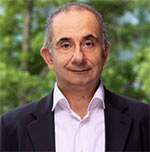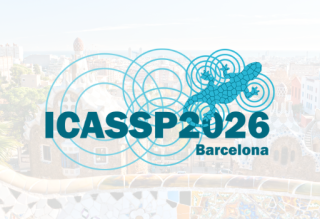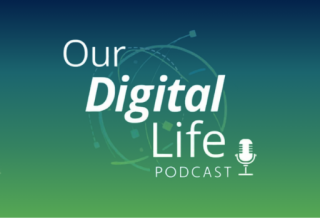- Our Story
- Publications & Resources
- Publications & Resources
- Publications
- IEEE Signal Processing Magazine
- IEEE Journal of Selected Topics in Signal Processing
- IEEE Signal Processing Letters
- IEEE Transactions on Computational Imaging
- IEEE Transactions on Image Processing
- IEEE Transactions on Information Forensics and Security
- IEEE Transactions on Multimedia
- IEEE Transactions on Signal and Information Processing over Networks
- IEEE Transactions on Signal Processing
- IEEE TCI
- IEEE TSIPN
- Data & Challenges
- Submit Manuscript
- Guidelines
- Information for Authors
- Special Issue Deadlines
- Overview Articles
- Top Accessed Articles
- SPS Newsletter
- SigPort
- SPS Resource Center
- Publications FAQ
- Blog
- News
- Dataset Papers
- Conferences & Events
- Community & Involvement
- Professional Development
- For Volunteers
- Information for Authors-OJSP
-
Home
Conferences Events IEEE Signal Processing Magazine IEEE SPL Article IEEE TIFS Article IEEE TMM Article IEEE TSP Article Jobs in Signal Processing Lectures Machine Learning Seasonal Schools Signal Processing News SPM Article SPS Distinguished Lectures SPS Newsletter Article SPS Webinar SPS Webinars SPS Webinar Series Webinar webinars
-
Our Story
What is Signal Processing?

The technology we use, and even rely on, in our everyday lives –computers, radios, video, cell phones – is enabled by signal processing. Learn More » -
Publications & Resources
-
SPS Resources
- Signal Processing Magazine The premier publication of the society.
- SPS Newsletter Monthly updates in Signal Processing
- SPS Resource Center Online library of tutorials, lectures, and presentations.
- SigPort Online repository for reports, papers, and more.
- SPS Feed The latest news, events, and more from the world of Signal Processing.
-
SPS Resources
-
Conferences & Events
-
Community & Involvement
-
Membership
- Join SPS The IEEE Signal Processing Magazine, Conference, Discounts, Awards, Collaborations, and more!
- Chapter Locator Find your local chapter and connect with fellow industry professionals, academics and students
- Women in Signal Processing Networking and engagement opportunities for women across signal processing disciplines
- Students Scholarships, conference discounts, travel grants, SP Cup, VIP Cup, 5-MICC
- Young Professionals Career development opportunities, networking
- Get Involved
-
Technical Committees
- Applied Signal Processing Systems
- Audio and Acoustic Signal Processing
- Bio Imaging and Signal Processing
- Computational Imaging
- Image Video and Multidimensional Signal Processing
- Information Forensics and Security
- Machine Learning for Signal Processing
- Multimedia Signal Processing
- Sensor Array and Multichannel
- Signal Processing for Communication and Networking
- Signal Processing Theory and Methods
- Speech and Language Processing
- Technical Working Groups
- More TC Resources
-
Membership
-
Professional Development
-
Professional Development
- Signal Processing Mentorship Academy (SigMA) Program
- Micro Mentoring Experience Program (MiME)
- Distinguished Lecturer Program
- Distinguished Lecturers
- Distinguished Lecturer Nominations
- Past Lecturers
- Distinguished Industry Speaker Program
- Distinguished Industry Speakers
- Distinguished Industry Speaker Nominations
- Industry Resources
- IEEE Training Materials
- Jobs in Signal Processing: IEEE Job Site
-
Career Resources
- SPS Education Program Educational content in signal processing and related fields.
- Distinguished Lecturer Program Chapters have access to educators and authors in the fields of Signal Processing
- Job Opportunities Signal Processing and Technical Committee specific job opportunities
- Job Submission Form Employers may submit opportunities in the area of Signal Processing.
-
Professional Development
-
For Volunteers
-
For Board & Committee Members
- Board Agenda/Minutes* Agendas, minutes and supporting documentation for Board and Committee Members
- SPS Directory* Directory of volunteers, society and division directory for Board and Committee Members.
- Membership Development Reports* Insight into the Society’s month-over-month and year-over-year growths and declines for Board and Committee Members
-
For Board & Committee Members
Popular Pages
Today's:
- Information for Authors
- Signal Processing Mentorship Academy (SigMA) Program
- IEEE Transactions on Information Forensics and Security
- (ICME 2026) 2026 IEEE International Conference on Multimedia and Expo
- IEEE Transactions on Multimedia
- 2026 IEEE 1st Annual Integrated Sensing and Communication Conference (ISAC)
- IEEE Transactions on Image Processing
- Submit a Manuscript
- Membership
- IEEE Signal Processing Letters
- IEEE Transactions on Audio, Speech and Language Processing
- Information for Authors-SPL
- Access Restricted
- SPS Mentors - SigMA Program
- 2026 IEEE Sensor Array and Multichannel Signal Processing Workshop (SAM)
All time:
- Information for Authors
- Submit a Manuscript
- IEEE Transactions on Image Processing
- IEEE Transactions on Information Forensics and Security
- IEEE Transactions on Multimedia
- IEEE Transactions on Audio, Speech and Language Processing
- IEEE Signal Processing Letters
- IEEE Transactions on Signal Processing
- Conferences & Events
- IEEE Journal of Selected Topics in Signal Processing
- Information for Authors-SPL
- Conference Call for Papers
- Signal Processing 101
- IEEE Signal Processing Magazine
- Guidelines
Last viewed:
- Conference Call for Papers
- Information for Authors-SPL
- Overview Articles
- (SPAWC 2026) IEEE 27th International Workshop on Signal Processing and Artificial Intelligence for Wireless Communications
- Information for Authors
- (ICASSP 2020) 2020 IEEE International Conference on Acoustics, Speech, and Signal Processing
- (ISBI 2025) 2025 IEEE International Symposium on Biomedical Imaging
- Learning the MMSE Channel Estimator
- IEEE Transactions on Multimedia
- IEEE JSTSP Special Series on Artificial Intelligence for Smart Agriculture
- IEEE JSTSP Special Issue on Advanced AI and Signal Processing for Low-Altitude Wireless Networks
- (ICME 2021) 2021 IEEE International Conference on Multimedia and Expo
- IEEE Journal of Selected Topics in Signal Processing
- IEEE Transactions on Signal Processing
- IEEE Transactions on Information Forensics and Security
Member Highlight: Prof. Néstor Becerra Yoma
You are here
Newsletter Menu
Newsletter Categories
Top Reasons to Join SPS Today!
1. IEEE Signal Processing Magazine
2. Signal Processing Digital Library*
3. Inside Signal Processing Newsletter
4. SPS Resource Center
5. Career advancement & recognition
6. Discounts on conferences and publications
7. Professional networking
8. Communities for students, young professionals, and women
9. Volunteer opportunities
10. Coming soon! PDH/CEU credits
Click here to learn more.
News and Resources for Members of the IEEE Signal Processing Society
Member Highlight: Prof. Néstor Becerra Yoma
Member Highlight: Prof. Néstor Becerra Yoma
Professor, Speech Processing and Transmission Lab
Department of Electrical Engineering, Universidad de Chile, Chile
 Néstor Becerra Yoma was born in Santiago, Chile. He obtained his Ph.D. from the University of Edinburgh, UK, and his M.Sc. and B.Sc. in electrical engineering from the State University of Campinas (UNICAMP), Brazil. He is a full professor at the University of Chile. He started the Speech Processing and Transmission Laboratory, where he has investigated artificial intelligence and signal processing applied to multidisciplinary topics. He was a visiting professor at Carnegie Mellon University, USA, between 2016 and 2017. He has directed many R&D projects, in addition to being the author of almost 100 articles in international research journals and conferences and of three patents. His interests include multidisciplinary research on artificial intelligence and signal processing in various fields of application, such as human-robot-interaction, health, and seismology. Between 2020 and 2021, funded by a Chilean research program to fight the COVID-19 pandemic, he led the R&D team that developed a system to assess respiratory distress on the phone with artificial intelligence. He leads an R&D team on seismology to improve tsunami and earthquake warnings. He was a member of the Expert Committee on AI of the Ministry of Science and Technology, which proposed the first national artificial intelligence policy between 2019 and 2022. He started the IEEE Chilean Signal Processing Society Chapter in 2015.
Néstor Becerra Yoma was born in Santiago, Chile. He obtained his Ph.D. from the University of Edinburgh, UK, and his M.Sc. and B.Sc. in electrical engineering from the State University of Campinas (UNICAMP), Brazil. He is a full professor at the University of Chile. He started the Speech Processing and Transmission Laboratory, where he has investigated artificial intelligence and signal processing applied to multidisciplinary topics. He was a visiting professor at Carnegie Mellon University, USA, between 2016 and 2017. He has directed many R&D projects, in addition to being the author of almost 100 articles in international research journals and conferences and of three patents. His interests include multidisciplinary research on artificial intelligence and signal processing in various fields of application, such as human-robot-interaction, health, and seismology. Between 2020 and 2021, funded by a Chilean research program to fight the COVID-19 pandemic, he led the R&D team that developed a system to assess respiratory distress on the phone with artificial intelligence. He leads an R&D team on seismology to improve tsunami and earthquake warnings. He was a member of the Expert Committee on AI of the Ministry of Science and Technology, which proposed the first national artificial intelligence policy between 2019 and 2022. He started the IEEE Chilean Signal Processing Society Chapter in 2015.
We approached Prof. Néstor Becerra Yoma to learn more:
Why did you choose to become a faculty in the field of signal processing?
After getting my BSc degree, I worked for a telecom company. I realized I needed some freedom to follow my own ideas and build my own technology. I decided to pursue my MSc and PhD degrees in speech recognition. I was impressed with the possibility of processing spoken language with math and programming, in other words, with digital signal processing. Being a faculty allowed me the freedom and chance to be part of the speech science and technology international community. I have met many inspiring and supportive researchers in this lavish, exciting, and welcoming community. At the University of Chile, I started the Speech Processing and Transmission Lab (LPTV, "Laboratorio de Procesamiento y Transmisión de Voz") in 2000, where I have carried out all my R&D efforts within and outside speech.
How does your work affect society?
First of all, at LPTV, I have trained tens of graduate and undergraduate students who worked on my R&D projects. Participating in R&D initiatives allows students to question, criticize, and follow their ideas. This is very important, particularly in developing countries. Signal processing gives them this opportunity because it requires talent rather than expensive equipment, significantly impacting society. Moreover, AI and deep learning are increasing this opportunity window to apply signal processing to real problems. Also, I have shown that speech processing can lead to exciting applications in human-robot interaction, education (language learning), and health (respiratory distress estimation). I started my robotic infrastructure by buying a PR2 robot (the only one in Latin America) and three NAO robots. Moreover, enhanced signal processing with deep learning tools has allowed us to address many applied problems in speech and fields such as seismology. We are working on a system to improve the tsunami and earthquake warnings online, which is very important in countries like Chile.
What challenges have you had to face to get to where you are today?
Getting funding is always an issue. Fortunately, I have had reasonable funding opportunities in Chile to conduct applied signal processing research. Also, if you are not in the US or Europe, getting recognition for your work in the international community in some technology fields is much more difficult. Fortunately, this is changing. Finally, sometimes, I think that basic research gets more attention from funding agencies than applied research. Here, we have a task to do.
What advice would you give to scientists/engineers in signal processing?
Just after finishing my PhD attended a session in an ICASSP version called "Meet the pioneers." We had the opportunity to talk to many of the best-known researchers and authors in signal processing. One of them said to us something like "Your imagination is your limit." I would say the same.
Is there anything else that you would like to add?
Talent does not choose countries or ethnicities. To those who are in a position to do so, try to give opportunities regardless of nationality or race.
Open Calls
| Nomination/Position | Deadline |
|---|---|
| Call for proposals: 2027 IEEE Conference on Artificial Intelligence (CAI) | 1 October 2025 |
| Take Part in the 2025 Low-Resource Audio Codec (LRAC) Challenge | 1 October 2025 |
| Meet the 2025 Candidates: IEEE President-Elect | 1 October 2025 |
| Call for Nominations for the SPS Chapter of the Year Award | 15 October 2025 |
| Submit Your 2026 ICASSP Workshop Paper | 22 October 2025 |
| Call for Papers for 2026 LRAC Workshop | 22 October 2025 |
| Submit a Proposal for ICASSP 2030 | 31 October 2025 |
| Call for Project Proposals: IEEE SPS SigMA Program - Signal Processing Mentorship Academy | 2 November 2025 |
Conferences & Events
Publications News
Education & Resources
Society News
Member Highlights
Technical Committee News
SPS Social Media
- IEEE SPS Facebook Page https://www.facebook.com/ieeeSPS
- IEEE SPS X Page https://x.com/IEEEsps
- IEEE SPS Instagram Page https://www.instagram.com/ieeesps/?hl=en
- IEEE SPS LinkedIn Page https://www.linkedin.com/company/ieeesps/
- IEEE SPS YouTube Channel https://www.youtube.com/ieeeSPS
Home | Sitemap | Contact | Accessibility | Nondiscrimination Policy | IEEE Ethics Reporting | IEEE Privacy Policy | Terms | Feedback
© Copyright 2025 IEEE - All rights reserved. Use of this website signifies your agreement to the IEEE Terms and Conditions.
A public charity, IEEE is the world's largest technical professional organization dedicated to advancing technology for the benefit of humanity.








